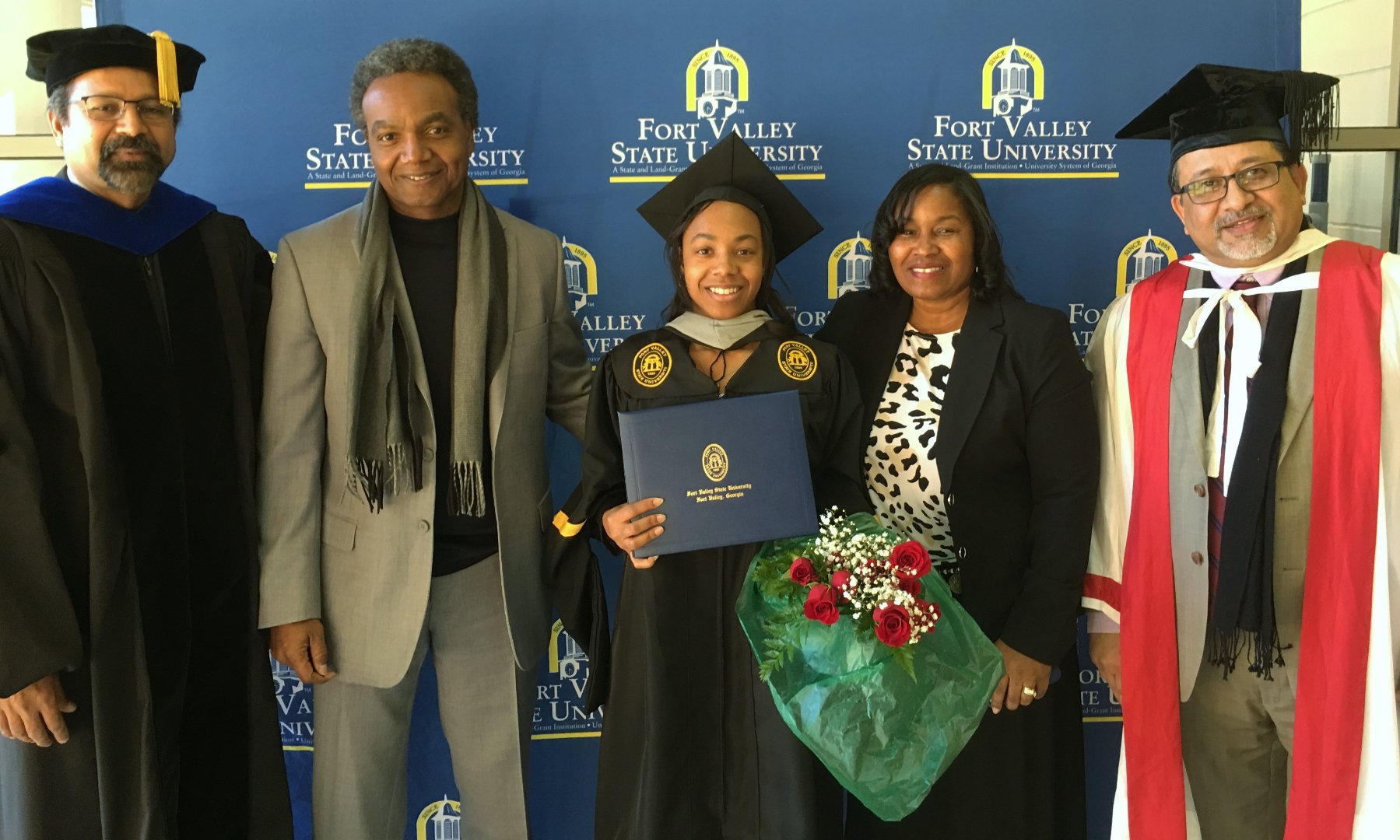From a small-town West Virginia girl to a forensic scientist at the Georgia Bureau of Investigation (GBI), Carissa Jackson uses her detail-oriented abilities and laboratory experience to assist in investigating crimes.
Jackson is a crime lab scientist at the GBI headquarters in Decatur, Georgia, where she has worked for a year. She earned a Bachelor of Science in biology from Albany State University in 2011 and a Master of Science in biotechnology from Fort Valley State University in 2016.
- What made you decide to pursue this career?
“It was kind of random. Once I graduated from Fort Valley State University, I did not know where I wanted to go. I ended up at Emory University doing research and then this position opened. I decided to try it because it was something new and different. I had the skills to do it, so I applied and it worked out.”
- What is unique about your job?
“I’m in training, so I do a lot of studying and observations. Typically, we get evidence and run three different sets of tests, which we do throughout the day. It is unique that the work we do actually helps in providing justice. You have to be focused, full of integrity and dedicated – that is with anything you do. Sometimes it can be tedious or repetitive, but you have to remember the main goal is, ‘I am really here to help people.’”
- How have you applied the knowledge you gained from studying at FVSU and ASU?
“They laid my foundation and made me versatile. I can go anywhere because of the two degrees that I earned.”

- Why did you pursue a degree in biotechnology at FVSU?
“I was inspired by a class and professor, Dr. Ashok Jain, during my senior year at Albany State University. I took a biotechnology class and fell in love. I changed from going to medical school to pursuing research at FVSU.”
- How has a career in science changed your life?
“It has opened up many possibilities. It makes me feel like I can do anything. I switched from plant biotechnology to neurology research to forensic science, so there are no limits. You can do anything.”
- Have you always been interested in science?
“I grew up in West Virginia in a little town no one knows exist. I was there until the fourth grade. Up until then, I wanted to be a teacher or nurse because that is what I saw. We moved to a different city and saw a little more but the same things. My dad decided his daughters needed to see more. My parents, sisters and I packed up and moved to Georgia. We saw people doing everything. My aspirations changed from wanting to be a teacher or nurse to, ‘I can actually be the doctor.’ I thought, ‘I can go all the way.’ I took that biotechnology class and it opened up a completely different world. I realized I could make a difference doing this instead of being a doctor. That’s how I ended up here.”
- What are you looking forward to gaining in the near future?
“Being able to come here and seeing that I can do anything, I will either remain here and work my way up or pursue a doctorate and start my own biotechnology company.”
- What advice would you give young girls interested in pursuing a career in science?
“Go for it. Do not be afraid of the challenges. For instance, chemistry was challenging for me. Instead of running from it, run at it. Do not be afraid to ask questions or ask for help. Do not let anything stop you. See your vision and run toward it.”
While at FVSU, Jackson worked as a graduate research assistant, where she was the first to develop an indirect organogenesis protocol for Scutellaria integrifolia through micropropagation techniques. In addition, she was the first to develop a successful genetic transformation protocol for Scutellaria integrifolia through Agrobacterium-mediated genetic transformation. Other research experiences at her alma mater include transforming E. coli and Agrobacterium tumefaciens bacteria for downstream genetic transformation of plant species.
